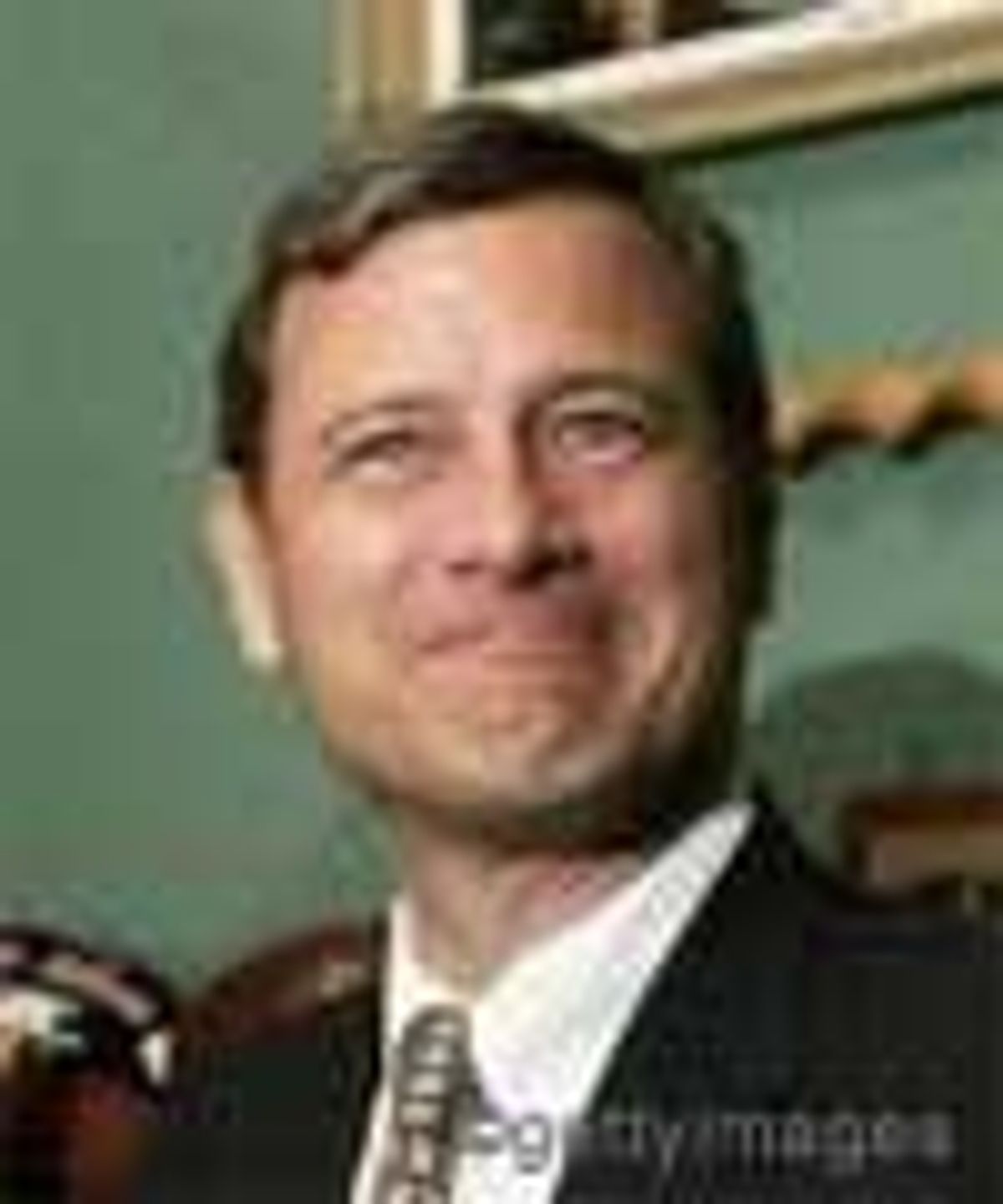Gay rights activists and attorneys who successfully defeated Colorado's antigay Amendment 2 in 1996 received important support from John G. Roberts Jr., Bush's pick to fill a vacancy on the U.S. Supreme Court. According to an August 4 report in the Los Angeles Times, Roberts worked behind the scenes providing legal expertise to help the activists persuade the Supreme Court to issue what was at the time considered the most important ruling in gay rights history, overturning a Colorado constitutional amendment that prohibited the state from protecting people from discrimination based on sexual orientation.
Then a lawyer specializing in appellate work, the conservative Roberts helped represent the gay rights activists as part of his law firm's pro bono work, reports the Times. He did not write the legal briefs or argue the case before the high court, but he was instrumental in reviewing filings and preparing oral arguments, according to several lawyers intimately involved in the case. Gay rights activists at the time described the court's 6-3 ruling as the movement's most important legal victory. The dissenting justices were those to whom Roberts is frequently likened for their conservative ideology: Chief Justice William H. Rehnquist, Antonin Scalia, and Clarence Thomas.
Roberts's work on behalf of gay rights activists appears to illustrate his allegiance to the credo of the legal profession: to zealously represent the interests of the client, whoever it might be. There is no other record of Roberts being involved in gay rights cases that would suggest his position on such issues. He has stressed, however, that a client's views are not necessarily shared by the lawyer who argues on his or her behalf. The lawyer who asked for Roberts's help on the case, Walter A. Smith Jr., then head of the pro bono department at Hogan and Hartson, said Roberts didn't hesitate. "He said, 'Let's do it.' And it's illustrative of his open-mindedness, his fair-mindedness. He did a brilliant job," Smith told the Times.
Jean Dubofsky, lead lawyer for the gay rights activists and a former Colorado supreme court justice, said that when she came to Washington to prepare for the U.S. Supreme Court presentation, she immediately was referred to Roberts. "Everybody said Roberts was one of the people I should talk to," Dubofsky told the Times. "He has a better idea on how to make an effective argument to a court that is pretty conservative and hasn't been very receptive to gay rights."
Dubofsky said Roberts gave her advice in two areas that were "absolutely crucial." "He said you have to be able to count and know where your votes are coming from. And the other was that you absolutely have to be on top of why and where and how the state court had ruled in this case," Dubofsky said. She said Roberts served on a moot court panel as she prepared for oral arguments, with Roberts taking the role of a Scalia-like justice to pepper her with tough questions. When Dubofsky appeared before the justices, Scalia did indeed demand specific legal citations from the lower-court ruling. "I had it right there at my fingertips," she said. "John Roberts...was just terrifically helpful in meeting with me and spending some time on the issue," she said. "He seemed to be very fair-minded and very astute." Dubofsky said Roberts helped her form the argument that the initiative violated the "equal protections" clause of the constitution.
The case was argued before the Supreme Court in October 1995, and the ruling was handed down the following May. The blistering dissent by Scalia, joined by Rehnquist and Thomas, read, "Coloradans are entitled to be hostile toward homosexual conduct." Scalia added that the majority opinion had "no foundation in American constitutional law, and barely pretends to."















































































